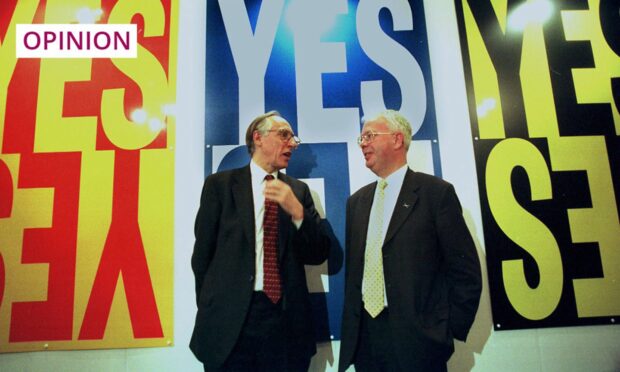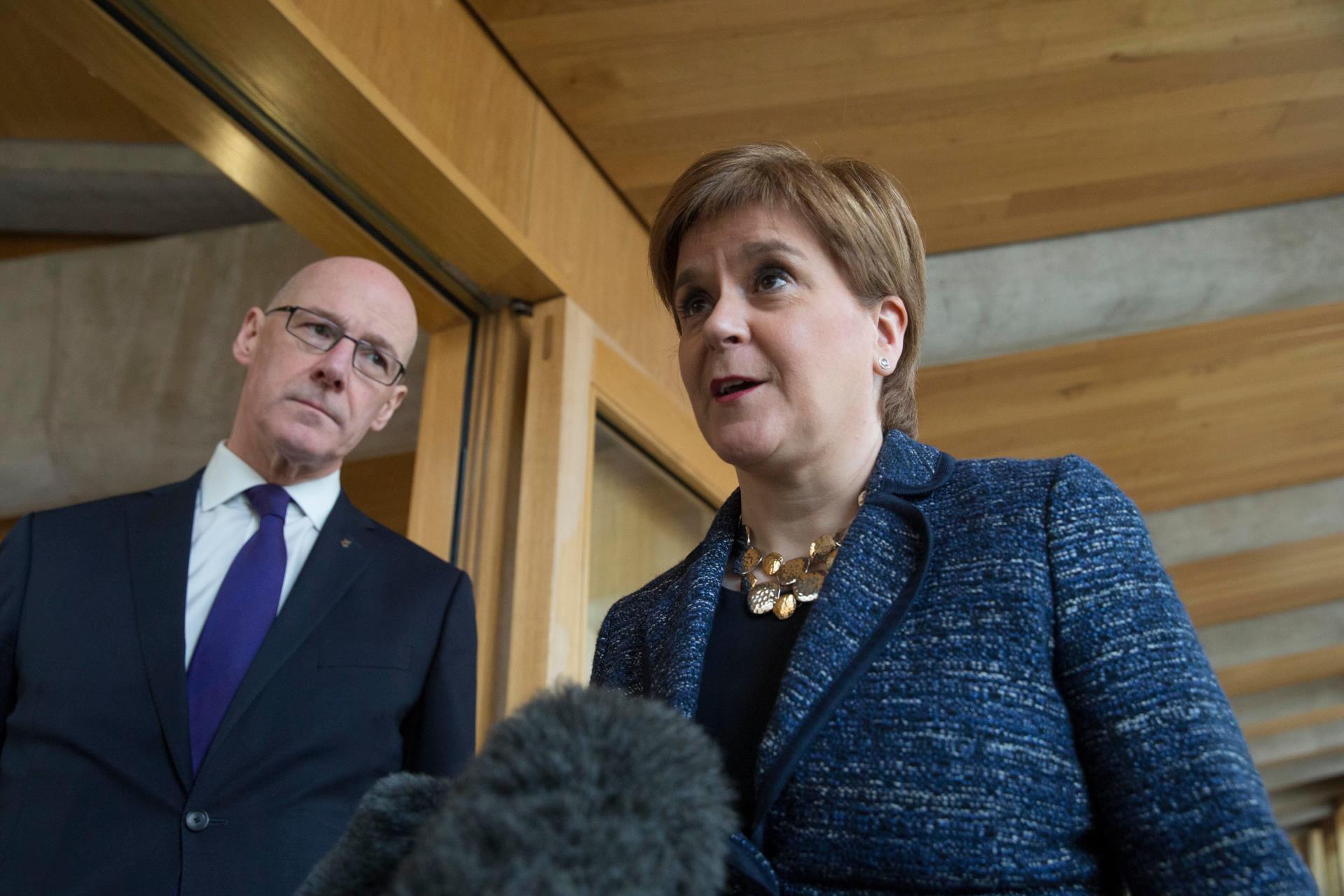These days, my life seems to be punctuated by a series of moments designed by the universe to remind me of my rapidly increasing decrepitude.
Rarely a day passes without something throwing me into an existential funk. Recently, the news that the debut album by The Smiths is now 40 years old tipped me into the Slough of Despond for a good day and a half.
But the one thing, more than anything else, that makes me feel old is the youth of so many people in positions of authority. Being older than the first or prime minister of the day has long ceased to be a novelty to me.
As I bump into my mid-50s, I try not to be one of those exhausting “bullets were faster when I was a lad” sorts. But, looking at the calibre of the current crop of MSPs at Holyrood, that’s not always easy.
The first Scottish parliament intake, back in 1999, included – across the parties – a number of substantial figures, who had already achieved a great deal both inside and out of politics.
Labour giants like Donald Dewar and Sam Galbraith tangled with gifted SNP combatants such as Alex Salmond, John Swinney and Nicola Sturgeon. Then Lib Dem leader Jim Wallace brought real intellectual heft to the first Scottish Executive – in which his party were Labour’s junior partners – and the Tory leadership team of David McLetchie and Annabel Goldie, both lawyers by trade, provided serious rigour during parliamentary debates.
These days? These days, I look across the Holyrood debating chamber and wonder how so many nonentities ended up in such important jobs.
Things are unimpressive inside the political bubble
From First Minister Humza Yousaf down, the SNP group is populated by politicians whose experience of the real world is supremely limited. We could do with a damn sight fewer former political bag-carriers who’ve grown up in the politics bubble.
I’m hardly the first to recognise the poor standard of MSPs at Holyrood. While first and deputy first minister respectively, Nicola Sturgeon and John Swinney were known for micromanaging a number of cabinet portfolios because, I’m afraid, they did not have sufficient confidence in some of their senior colleagues to simply allow them to get on with their jobs.
The departure of Sturgeon and Swinney from the frontline has fully exposed the paucity of talent in the current cabinet. Yousaf, about to mark his first year in power, has neither the charisma nor the communication skills of his predecessor.
And while, sure, his job has been made more difficult by the ongoing police investigation into the handling of SNP finances under the previous regime, it’s still not entirely clear what Yousaf wants to do with power. For now, he remains our dog-that-caught-the-car first minister.
Things are little more impressive across Holyrood’s opposition benches. Tory leader Douglas Ross is in the “solid enough” category, which is is hardly enough to spark a revival in fortunes.
But it is in the Labour group that the lack of talent is most obvious. Leader Anas Sarwar impresses with his energy, and his deputy, Dame Jackie Baillie, is rightly regarded one of the most effective political campaigners in Scotland. But, as we move further down the ranks, few individuals stand out.
We need a new generation of candidates with real-world experience
Shadow Finance Secretary Michael Marra – a list MSP for North East Scotland – is thoughtful and sharp in debate, but his election in 2021 did not swell the Labour talent pool. Marra replaced his sister, Jennifer, meaning Labour gained one talented MSP while losing another.
Right now, Scottish Labour’s attention is on the next general election, but the party should also be thinking about how it can attract a higher standard of candidates to stand for the party in the 2026 Holyrood election.
Let’s see Labour – and the SNP, for that matter – look across industry, education and the NHS for a new generation of candidates who can bring real-world experience and intellectual heft to Holyrood.
No matter who wins the next Holyrood election, let’s hope for a higher standard of MSP across the Scottish parliament
The recent matter of the Scottish Government’s failed attempt to change the Gender Recognition Act to allow self-ID illustrated perfectly the problem with too many MSPs. The majority of members ignored warnings that the law was unworkable.
When Scottish Secretary Alister Jack blocked it, they cried foul, but the actual problem was that they had neither understood the powers of devolution, nor considered the consequences of their decision-making.
No matter who wins the next Holyrood election, let’s hope for a higher standard of MSP across the Scottish parliament. Parties must be able to find better candidates, surely?
Euan McColm is a regular columnist for various Scottish newspapers



Conversation